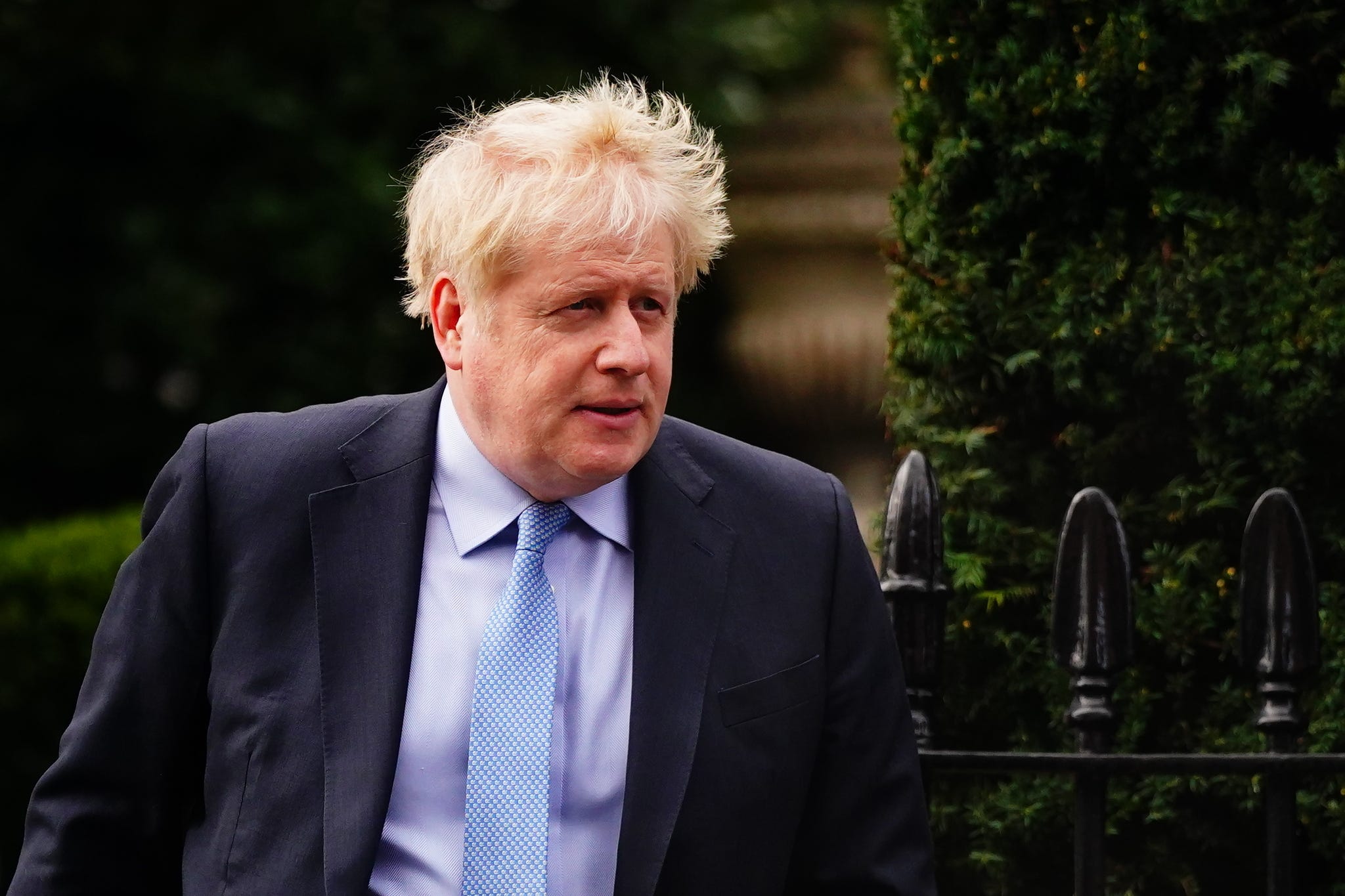Danger Covid inquiry undermined if Government wins legal bid – Johnson lawyers
Two judges are due to give their ruling in the bid over the former prime minister’s unredacted WhatsApps and diaries at a later date.

There is a “real danger” the UK Covid Inquiry would be undermined if the Cabinet Office wins its High Court bid, lawyers for former prime minister Boris Johnson have said in a dispute over his unredacted WhatsApp messages, diaries and notebooks.
The Cabinet Office is bringing a judicial review of inquiry chairwoman Baroness Heather Hallett’s order to release the documents, arguing it should not have to hand over material that is “unambiguously irrelevant”.
Lawyers for the department argue the inquiry does not have the legal power to force ministers to release documents and messages it says cover matters “unconnected to the Government’s handling of Covid”.
Mr Johnson himself is backing Baroness Hallett in opposing the legal challenge over the request, which includes unredacted WhatsApp messages between him and around 40 named individuals involved in the central Government response to the pandemic between January 2020 and February 2022.
At a hearing in London on Friday, Sir James Eadie KC, representing the Cabinet Office, said the challenge was “brought with some considerable reluctance”, but Lady Hallett’s demand was “so broad” it was “bound to catch” a large amount of irrelevant material.
He added in written submissions: “Compelling the provision of every WhatsApp over a two-year period, without any subject matter qualification, is absurd.”
However, Lord David Pannick KC said on behalf of the former prime minister: “Unless the inquiry can see the material, it cannot form its own judgment.”
The barrister continued: “The issue of principle is not whether the inquiry may insist on seeing irrelevant material.
If Sir James were to be correct, there is a real danger that the functions of the inquiry would be undermined, that public confidence would be undermined
“The issue, I say, is whether the inquiry may require production of material that the Cabinet Office regards as irrelevant but which the chair wishes to see so that she can form her own judgment on whether that material ‘may cast light on matters that fall within the terms of reference’.”
Lord Pannick added there could be wider implications if the Cabinet Office – and other bodies – were allowed to decide themselves what documents may be relevant to the inquiry.
He continued: “If Sir James were to be correct, there is a real danger that the functions of the inquiry would be undermined, that public confidence would be undermined.”
In written arguments put before the court on Mr Johnson’s behalf, his lawyers said he has “no objection” to the inquiry having the unredacted material, subject to “appropriate security and confidentiality arrangements” being in place – which he has been assured of by the inquiry.
Lady Hallett also contends the Cabinet Office’s position “undermines” her ability to carry out the inquiry properly and would have “serious implications” for all public inquiries.
Hugo Keith KC, for the inquiry’s chair, told the court: “The reality is the inquiry cannot issue any notice confident that every single part of it, every single document or part of a document will turn out to be relevant.”
He added: “There simply could not have been a notice sensibly drawn up that could refer to individual messages.”
Mr Keith later added that the idea that the Cabinet Office could decide which aspects were relevant “would emasculate this and future inquiries”.
In written submissions, he said the outcome of the case would be likely to influence the way similar powers for production of documents were conducted in other contexts, such as the work of coroners.
The barrister later said the most Lady Hallett could say about documents she has not seen is that they may be “potentially relevant”.
Mr Keith continued: “A broad approach to evidence gathering is essential because an unduly narrow approach risks missing key documents and therefore undermining the purpose of the inquiry.
The Government took the highly unusual step of launching the challenge earlier in June and the move attracted criticism after days of public wrangling between the Cabinet Office and Lady Hallett’s probe after she rejected its argument the material was not relevant in a May ruling.
The former prime minister handed over his unredacted WhatsApp messages, diaries and 24 notebooks to the Cabinet Office in late May.
The hearing, before Lord Justice Dingemans and Mr Justice Garnham, concluded on Friday and the judges will give their decision in writing at a later date.
